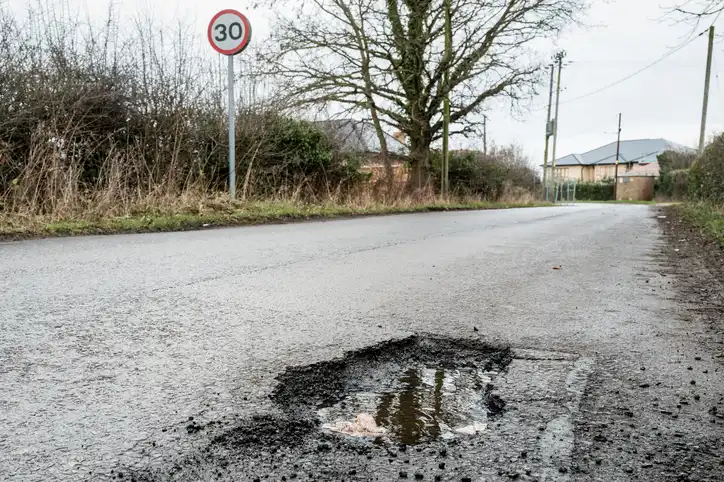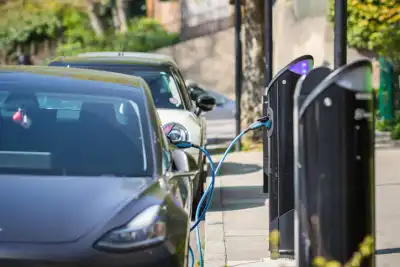
Pothole-related breakdowns have spiked to an “unseasonable high” between April and June 2025, according to new figures from the RAC.
During those three months, the RAC dealt with 6,575 roadside callouts for damage caused by potholes including broken suspension springs, bent wheels and wrecked shock absorbers. That’s a 9% increase on the same period last year. Zoom out further, and in the past 12 months they’ve handled about 25,000 pothole-related breakdowns which works out at around 68 every single day.
So why are roads crumbling when we’re supposed to be in the warmer, drier months? The RAC says the unusually cold and wet start to 2025 made the problem worse. Normally, potholes form in winter when water seeps into cracks, freezes, and forces the gaps wider. This year, winter weather dragged on, meaning more roads have cracked and broken up.
There is some light at the end of the tunnel though. Local councils have already received extra road repair funding as part of Keir Starmer’s government pledge back in April. But the RAC’s head of policy, Simon Williams, says councils need to focus on “prevention over patching."
He said, “After filling the most severe potholes as permanently as possible, preventative treatments like surface dressing are by far the most effective because they stop potholes appearing in future. Now councils have long-term certainty of funding, they can plan surfacing dressing works, along with resurfacing roads that are beyond repair.”
The Labour government has promised to fix one million potholes a year under its new ‘Plan for Drivers’.
Still, pothole-related callouts only make up 1.2% of all breakdowns the RAC attends, but they’re at their highest proportion in seven years.
Mike Hansford, from the Road Surface Treatments Association, summed it up, “Untreated asphalt roads will naturally degrade over time, leading to the formation of potholes.”
“It is essential to invest in cost-effective preventative road surface treatments to seal the road; preventing water ingress, and to act as a barrier to the elements and the effects of trafficking, keeping roads in good condition for longer and preventing potholes.”




